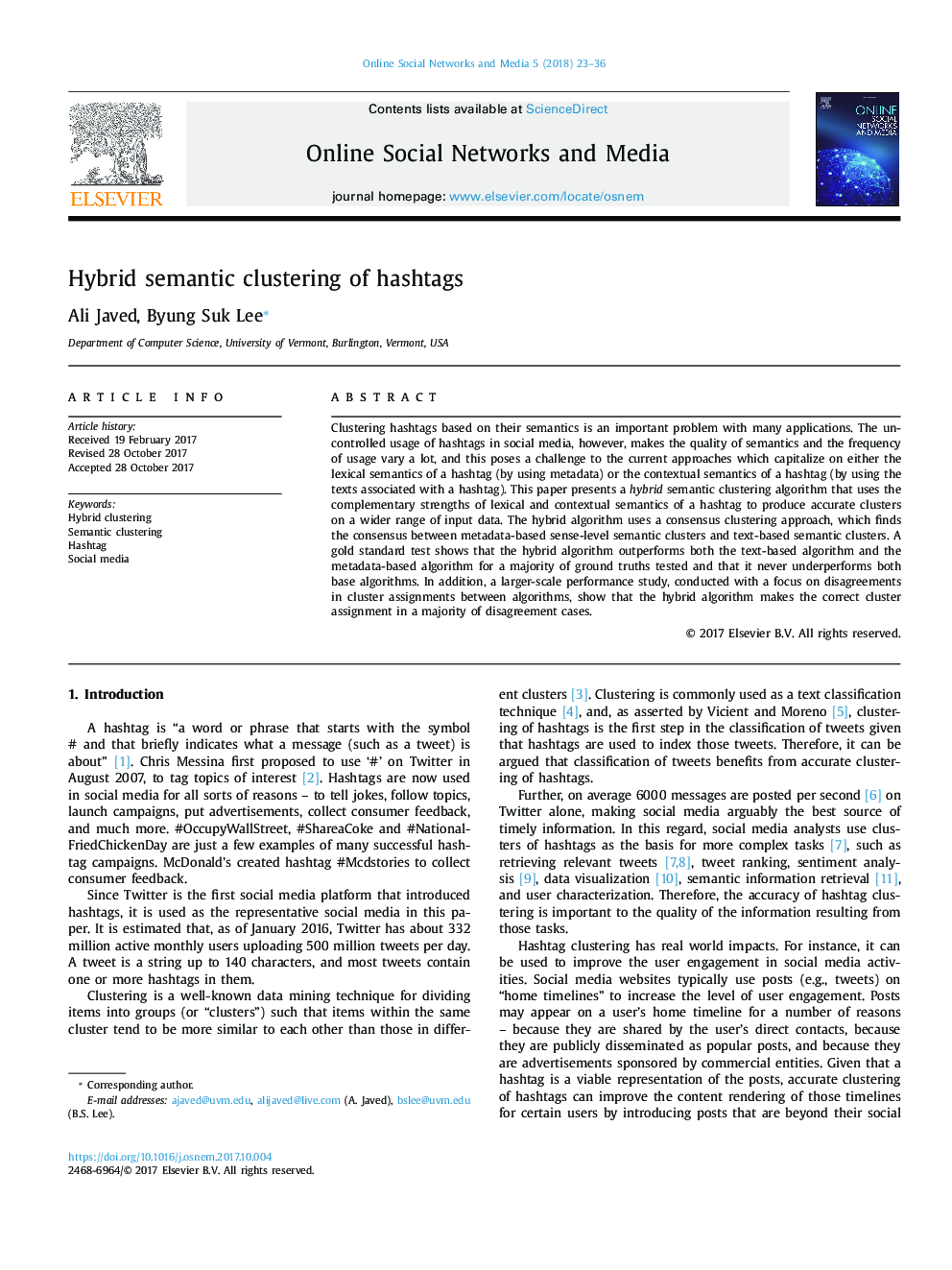| Article ID | Journal | Published Year | Pages | File Type |
|---|---|---|---|---|
| 8917960 | Online Social Networks and Media | 2018 | 14 Pages |
Abstract
Clustering hashtags based on their semantics is an important problem with many applications. The uncontrolled usage of hashtags in social media, however, makes the quality of semantics and the frequency of usage vary a lot, and this poses a challenge to the current approaches which capitalize on either the lexical semantics of a hashtag (by using metadata) or the contextual semantics of a hashtag (by using the texts associated with a hashtag). This paper presents a hybrid semantic clustering algorithm that uses the complementary strengths of lexical and contextual semantics of a hashtag to produce accurate clusters on a wider range of input data. The hybrid algorithm uses a consensus clustering approach, which finds the consensus between metadata-based sense-level semantic clusters and text-based semantic clusters. A gold standard test shows that the hybrid algorithm outperforms both the text-based algorithm and the metadata-based algorithm for a majority of ground truths tested and that it never underperforms both base algorithms. In addition, a larger-scale performance study, conducted with a focus on disagreements in cluster assignments between algorithms, show that the hybrid algorithm makes the correct cluster assignment in a majority of disagreement cases.
Related Topics
Physical Sciences and Engineering
Computer Science
Computer Networks and Communications
Authors
Ali Javed, Byung Suk Lee,
